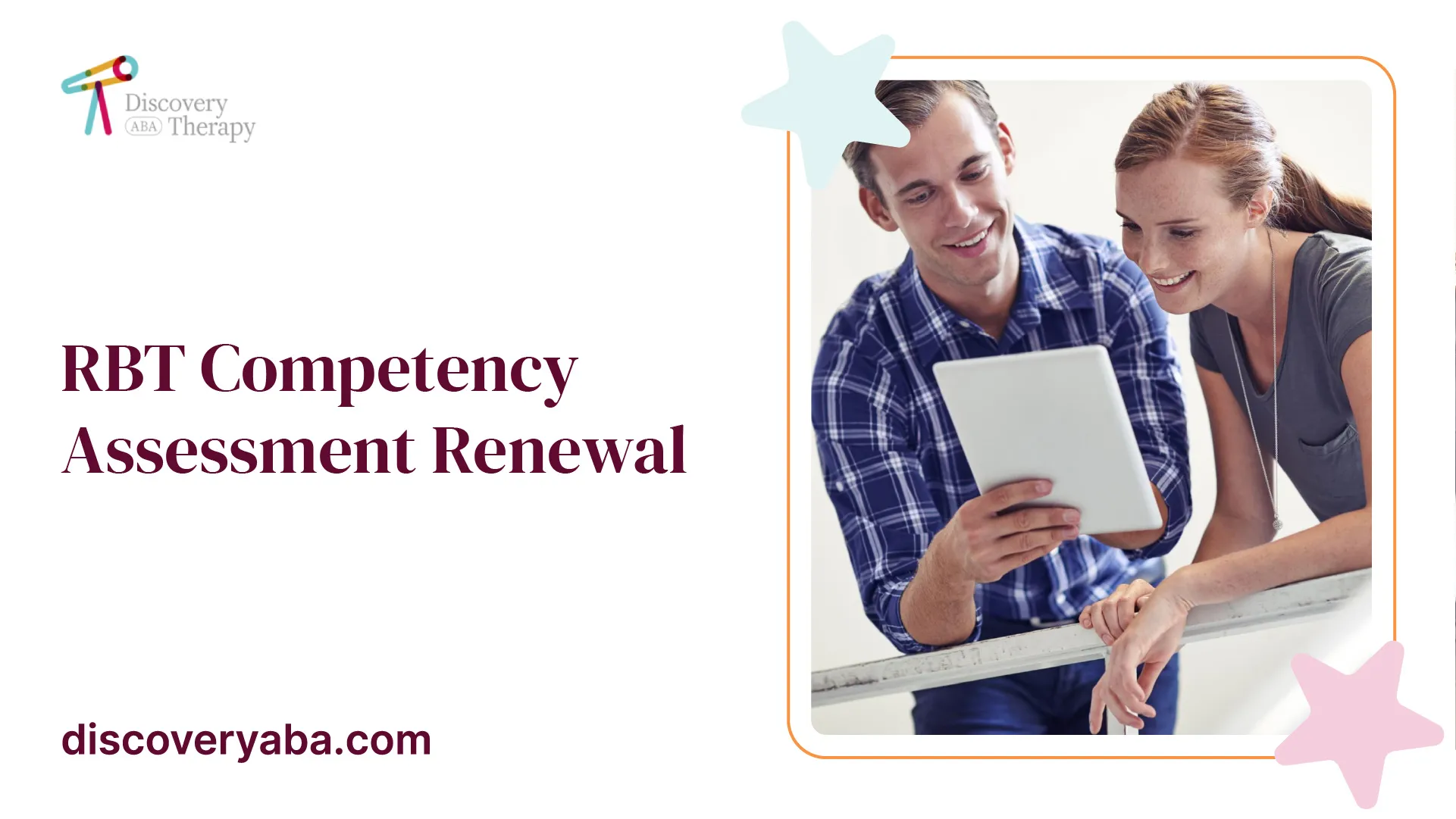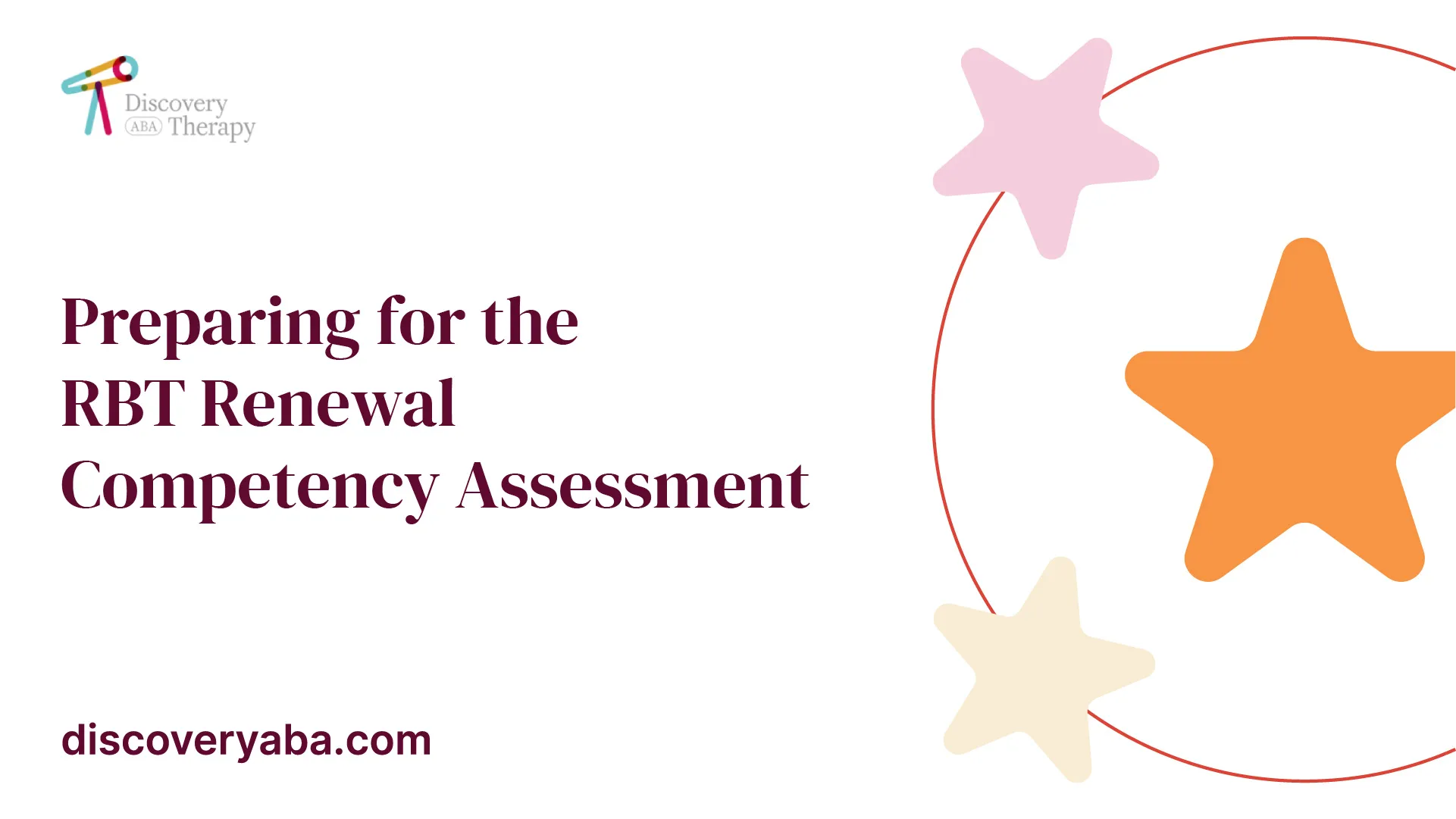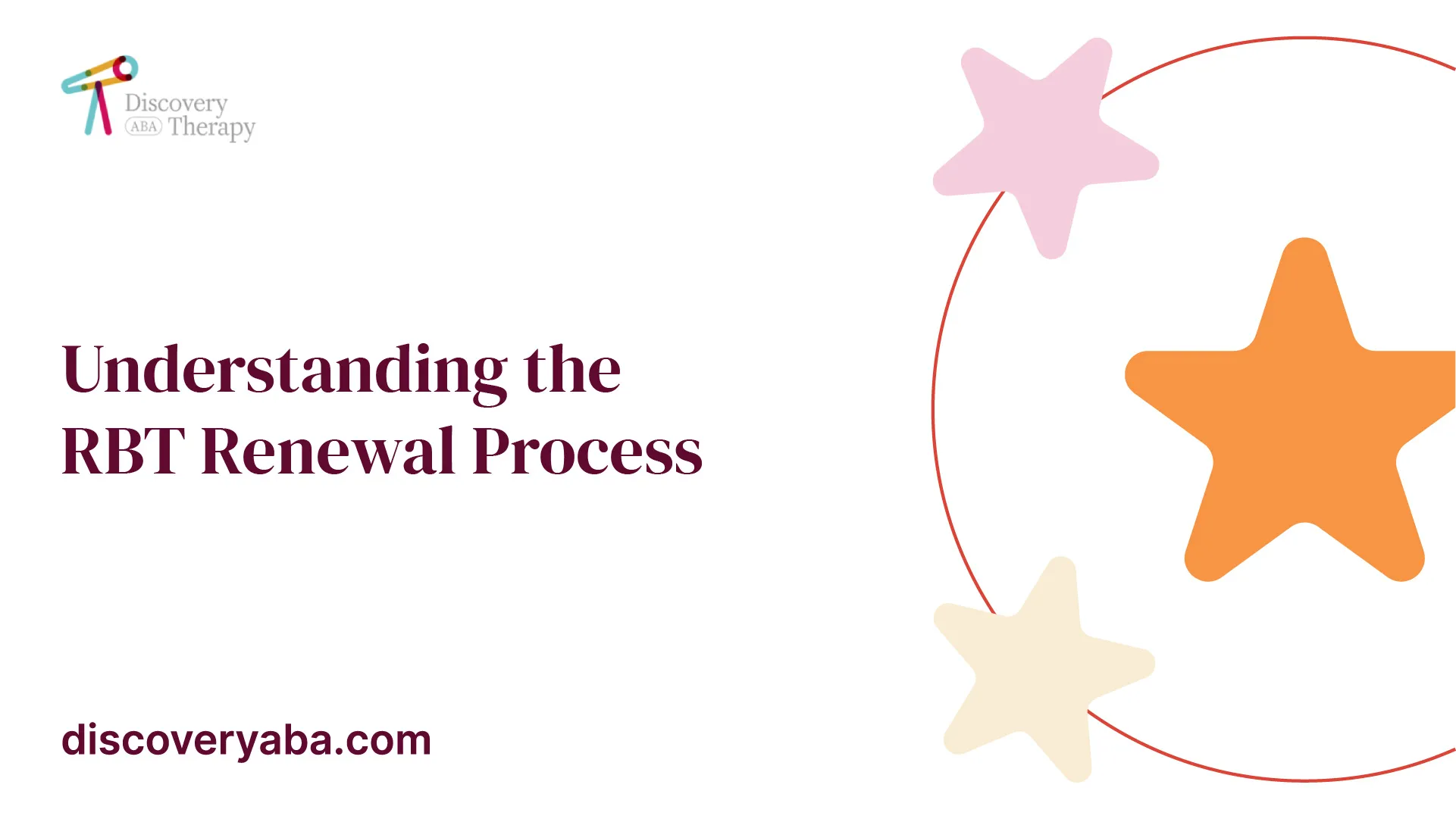RBT Competency Assessment Renewal
Navigate the RBT competency assessment renewal with essential tips, resources, and ethical guidelines for success.

RBT Renewal Competency Assessment Overview
The RBT Renewal Competency Assessment is a crucial step for individuals looking to maintain their Registered Behavior Technician (RBT) certification. This assessment ensures that RBTs have the necessary skills and ethical understanding to provide quality care in behavior analysis.

Components of the Assessment
The RBT Renewal Competency Assessment consists of two primary components:
These components together ensure that RBTs are well-rounded in both their technical skills and their adherence to ethical standards in behavior analysis.
Passing Score Requirement
To successfully renew their RBT certification, renewal applicants must achieve a minimum score of 80% on the RBT Renewal Competency Assessment. The assessment consists of 50 multiple-choice questions that span various RBT competencies.
The breakdown of topics covered in the assessment includes:
TopicNumber of QuestionsMeasurement10Assessment10Skill Acquisition10Behavior Reduction10Documentation and Reporting10
Meeting the passing score is essential for ensuring that all RBTs maintain a high standard of practice and are equipped with the knowledge to support individuals with autism effectively.
Preparing for the RBT Renewal Competency Assessment1
Preparing for the RBT competency assessment renewal requires effective study strategies and access to appropriate resources. Below are key tips and practice resources to help ensure success.

Study Tips and Strategies
Practice Resources
Here are some recommended resources to aid in preparation for the RBT Renewal Competency Assessment:
Resource TypeDescriptionAccess LinkOnline Training CoursesCourses covering RBT tasks and assessment areas.RBT 40-hour training online freeMock AssessmentsPractice tests designed to mimic the assessment.Kyo Autism TherapyStudy GuidesComprehensive guides covering RBT topics.Various reputable behavior analysis websitesPeer Study GroupsOrganized groups for collaborative study effort.Local community centers or online forumsInteractive LearningApps and tools for engaging learning experiences.Various educational platforms
It's important to stay updated on any changes in the assessment process and requirements. Consistent preparation paired with reliable resources can improve the chances of achieving the necessary score of 80% or higher for renewal. If an RBT does not achieve this score, they have opportunities to retake the assessment, though limitations may exist regarding the number of attempts within a specified timeframe [1].
Understanding the RBT Renewal Process2
Renewing an RBT certification is essential for maintaining professionalism and compliance with the Behavior Analyst Certification Board (BACB) standards. Understanding the renewal process, including the documentation requirements and the application submission process, ensures a smooth experience for those seeking to renew their certification.
Documentation Requirements
Proper documentation is critical for the RBT renewal application. Certain key documents must be collected and prepared before submission. The essential components of documentation include:
Required DocumentsDescriptionRenewal Application FormA form used to apply for certification renewal.Supervision DocumentationProof of required supervision hours during the renewal period.Proof of Continuing EducationEvidence of relevant continuing education credits earned.
It is advisable to gather all necessary documentation well in advance to ensure compliance and avoid any delays during the renewal process [1]. Following the correct procedure can facilitate a seamless renewal and ensure certification confirmation within approximately two weeks [1].
Application Submission Process
The application submission process requires careful attention to detail. Individuals must ensure that all documents are complete and accurate before submission to avoid any potential issues. The steps to follow include:
By adhering to the defined application submission process, individuals can meet the necessary requirements for maintaining their certification [2]. This ensures ongoing professional development and access to resources from the behavior analysis community, which can be invaluable for families and caregivers of individuals with autism [2].

Maintaining RBT Certification Status
Importance of Renewal
Maintaining Registered Behavior Technician (RBT) certification is vital for those providing support in the field of autism care. Renewal ensures that RBTs stay current with best practices and ethical standards, thereby providing the highest quality of care. To successfully renew their certification, applicants must score a minimum of 80% on the RBT Renewal Competency Assessment. This assessment includes 50 multiple-choice items covering various RBT tasks, such as measurement, assessment, skill acquisition, behavior reduction, documentation, and reporting [1].
Losing certification could impact the ability to work with individuals with autism and the overall quality of care families receive. Proper renewal promotes ongoing education and knowledge important for effective intervention strategies.
Reinstatement Procedures
If an RBT misses the renewal deadline, reinstatement is possible within a specific timeframe. There is a 30-day reinstatement period that allows RBTs to submit their application and pay any required fees after their certification has expired. However, if the certification is not renewed within this period, the RBT's certification status will become inactive. An RBT cannot provide services, bill for services, or represent themselves as an RBT until they have a new supervisor on record.
Summary of Reinstatement Timelines
ActionDurationGrace Period for Renewal30 days after expirationInactive CertificationImmediate upon removal by supervisor
It is essential for RBTs to keep track of their certification status and adhere to renewal processes to continue supporting individuals with autism effectively. Families and caregivers can rely on certified professionals to implement effective behavioral strategies, ensuring the best outcomes for those in their care. For more details on training and resources, visit our page on RBT 40-hour training online free.
Ethical Considerations for RBT Renewal
For Registered Behavior Technicians (RBTs) renewing their competency assessment, maintaining a strong understanding of ethical considerations is paramount. Ethical guidelines not only govern their practice but also ensure that families and caregivers of people with autism receive the highest standard of care.
Ethical Guidelines Review
RBTs are expected to adhere to the Ethics Code for Behavior Analysts, which outlines fundamental principles that guide their professional behavior. Familiarity with these guidelines helps RBTs to navigate complex situations and make sound decisions that benefit their clients. Key ethical principles include:
RBTs seeking to review these ethical guidelines can refer to resources such as the Behavior Analyst Certification Board (BACB) website for comprehensive documents and additional training opportunities like rbt 40-hour training online free.
Addressing Potential Ethics Violations
In the event that an RBT suspects a potential violation of ethical standards by a supervisor or colleague, it is crucial to address concerns proactively. The following steps are recommended:
These steps not only help maintain professional integrity but also ensure that families and caregivers receive ethical and effective support. RBTs should always strive to uphold the highest standards of practice and contribute positively to the field of behavior analysis.
Continuing Education for RBTs
Continuing education is a crucial component for Registered Behavior Technicians (RBTs) to maintain their competency and effectiveness in providing care to individuals with autism. This section will discuss the CEU requirements and the benefits of ongoing education for RBTs.
CEU Requirements
RBTs must accumulate a specific number of Continuing Education Units (CEUs) during the renewal period to stay updated with the latest research and best practices in applied behavior analysis (ABA). Acquiring these units ensures that RBTs enhance their skills and knowledge, ultimately benefiting the families and individuals they serve.
RequirementUnit ValueTotal CEUs Required20Ethics CEUs3Online Courses AvailableVarious
RBTs are encouraged to seek out diverse educational opportunities, including workshops, seminars, and online courses. This variety helps to ensure they are well-rounded in their continuing education.
Benefits of Ongoing Education
Engaging in ongoing education offers numerous benefits for RBTs:
For those looking to fulfill their CEU requirements, various educational resources are available, such as the rbt 40-hour training online free course, which can provide valuable knowledge and skills relevant to their work. Ultimately, continuing education is not just a requirement for RBT renewal; it is an essential part of being an effective and responsive professional in the field.
References
[2]:
[3]:
Does Your Child Have An Autism Diagnosis?
Learn More About How ABA Therapy Can Help
Find More Articles
Contact us
North Carolina, Nevada, Utah, Virginia
New Hampshire, Maine
Arizona, Colorado, Georgia, New Mexico, Oklahoma, Texas
.avif)




































































































